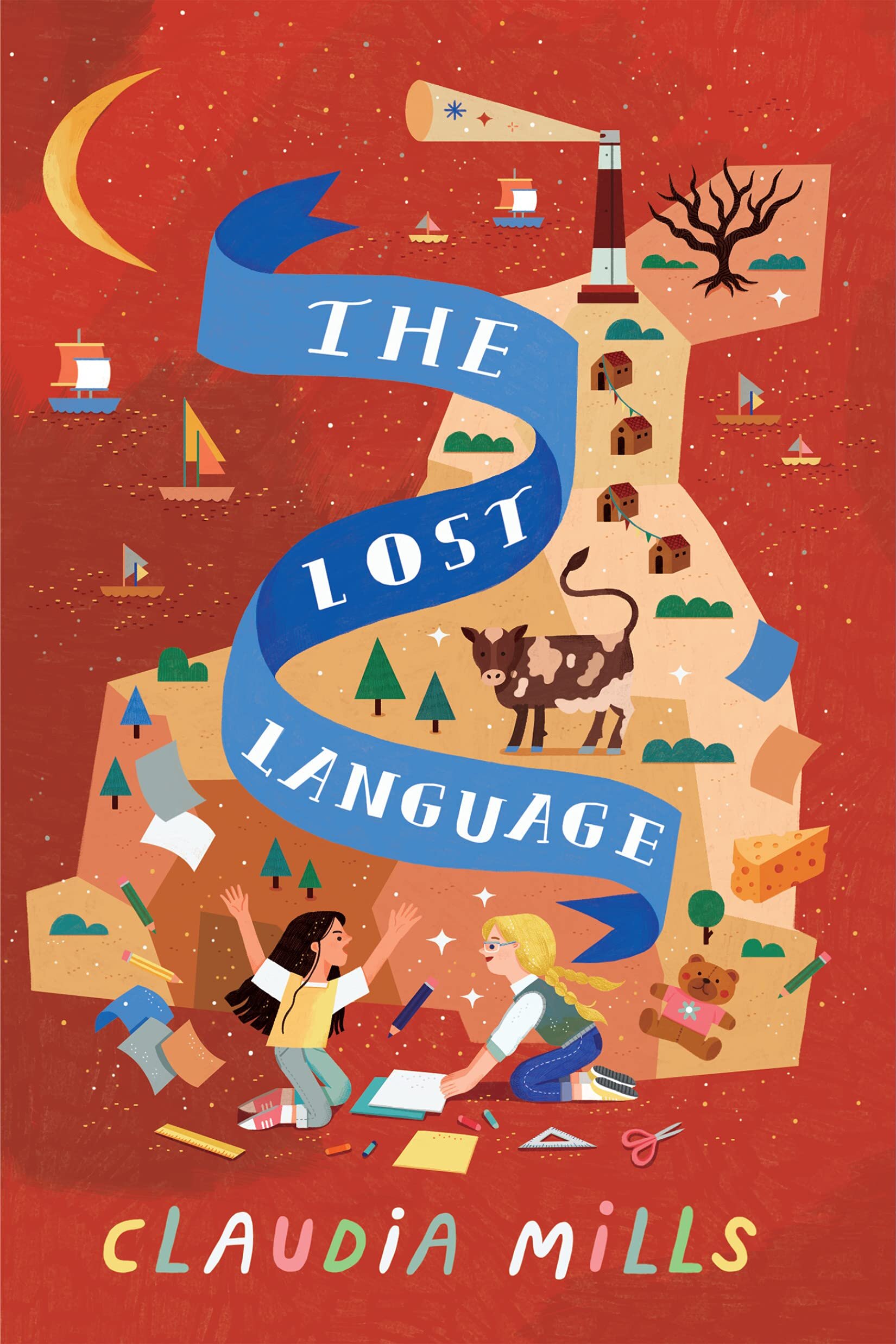Meet author and Hollins Professor Claudia Mills (image courtesy of Claudia Mills).
Last week, I paid for my thesis, my final graduate class at Hollins University. When I set my mind on grad school, I promised myself to do it debt free, and I did. It is so satisfying to accomplish a goal.
My thesis is still underway; I am busy writing, rewriting, editing, and drawing my illustrated middle grade novel. But I’m not the only one reading and revising my story. Part of the Hollins thesis involves the guidance of two professors, and the wonderful Claudia Mills is both my primary thesis advisor and a skilled middle grade novelist. In fact, her newest middle grade novel, The Lost Language, comes out tomorrow! I have been Claudia’s student in three different writing classes, and in every class of hers, I learn something new. She is an excellent teacher, and it’s been my pleasure getting to know her throughout my grad school tenure. I chatted with her about her new book, which I will be reading soon, the writing process, and her influences.
When did you know you wanted to be a children's book writer?
I always knew I wanted to be a writer. When I was in first grade, I wrote the world's simplest book - just a collection of crudely drawn crayon pictures with one-word captions ("Tree," "Rainbow," "Cloud," etc.) - but at the back of the book I was already advertising future publications. I promised readers a "thick book - 100 pages" on "My Life" and a "big book - 100 pages" of "Powatree." I couldn't yet spell, but I already had big dreams of a future as a writer. Many of my books for young readers draw heavily on my own experiences, so they are in that way about "My Life," and my most recent book, a verse novel, is at long last my big book of "Powatree." I chose to write for children as it was the books I read as a child that touched me most deeply and shaped my life most profoundly.
Do you have any influences or favorite authors that have impacted your writing?
I still love the books I read as a child. My favorite author then and now has been Maud Hart Lovelace, who wrote the Betsy-Tacy series of books, which were based on her own childhood at the turn of the last century. Other favorite authors include Eleanor Estes (The Hundred Dresses), Madeleine L'Engle (A Wrinkle in Time), and Frances Hodgson Burnett (The Secret Garden).
Claudia in Denver Botanic Gardens (Image courtesy of Claudia Mills).
Do you have a specific place where you write your stories?
I always write my books longhand, on a pad of narrow-ruled white paper with a Pilot fine-tipped back marker pen, while lying on the couch drinking hot chocolate. I like to write for an hour each day, timed with my beloved hand-crafted cherrywood hourglass. But as a special treat, I like to take myself somewhere else for a writing date. A favorite spot is the Denver Botanic Gardens (see photo).
The Lost Language is a novel-in-verse about a pair of best friends who work to save a language from extinction. Where did your idea for this story come from? What made you want to write this story in verse?
Claudia’s first book cover (image courtesy of Claudia Mills).
As a child I read the Golden Book Encyclopedia cover-to-cover, and in the volume for E I was excited to learn about the "universal language" of Esperanto, created in the 19th century to be a simplified language that could be spoken by all the world's people. This sounded so wonderful to me: to have everybody in the world able to communicate so easily by speaking a common tongue. I yearned to learn Esperanto myself and start speaking it. But as an adult I came to appreciate the wonderful diversity of the world's estimated 7000 different languages, and I became consumed with the tragedy of their accelerating extinction. I thought of how, if I had been a child now, I would have yearned to learn and speak an endangered language, as a child's attempt to try to save it. As the book is so focused on the importance of language, verse seemed the right choice for writing it, as it puts a premium on compressed expression of emotion through well-chosen words.
Is there a particular genre you find yourself revisiting as an author? An age group you prefer to write for?
I've written mainly chapter books for third-grade level readers, and middle-grade novels, always realistic fiction focused on school and family. That is what I love to read most, too. Real life is infinitely interesting to me!
What advice would you give to aspiring children's book authors?
Claudia’s newest book, a novel-in-verse (image courtesy of Claudia Mills).
The three most important commandments for any writer, in any field, are the obvious ones: 1) read! read! read!; 2) write! write! write!; and 3) revise! revise! revise! To these I would add my own fourth one: take joy in the process of writing. Sometimes writers take pride in talking about how terribly hard writing is and how much they suffer in doing it. They come right out and say, "I hate writing, but love having written." I say: give yourself permission to LOVE writing and to do it with joy. I think you'll write better if you write this way - and have a lot more fun doing it.
You can find The Lost Language at a bookstore near you and follow Claudia’s latest writing news at claudiamillsauthor.com




